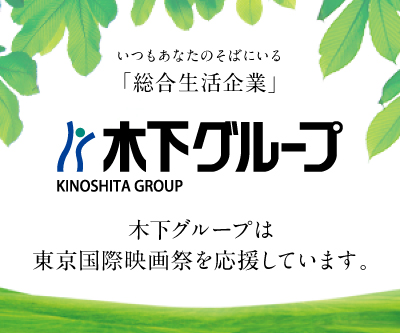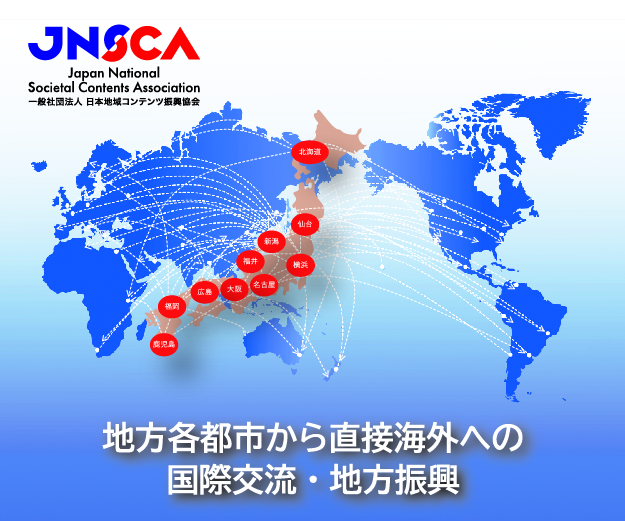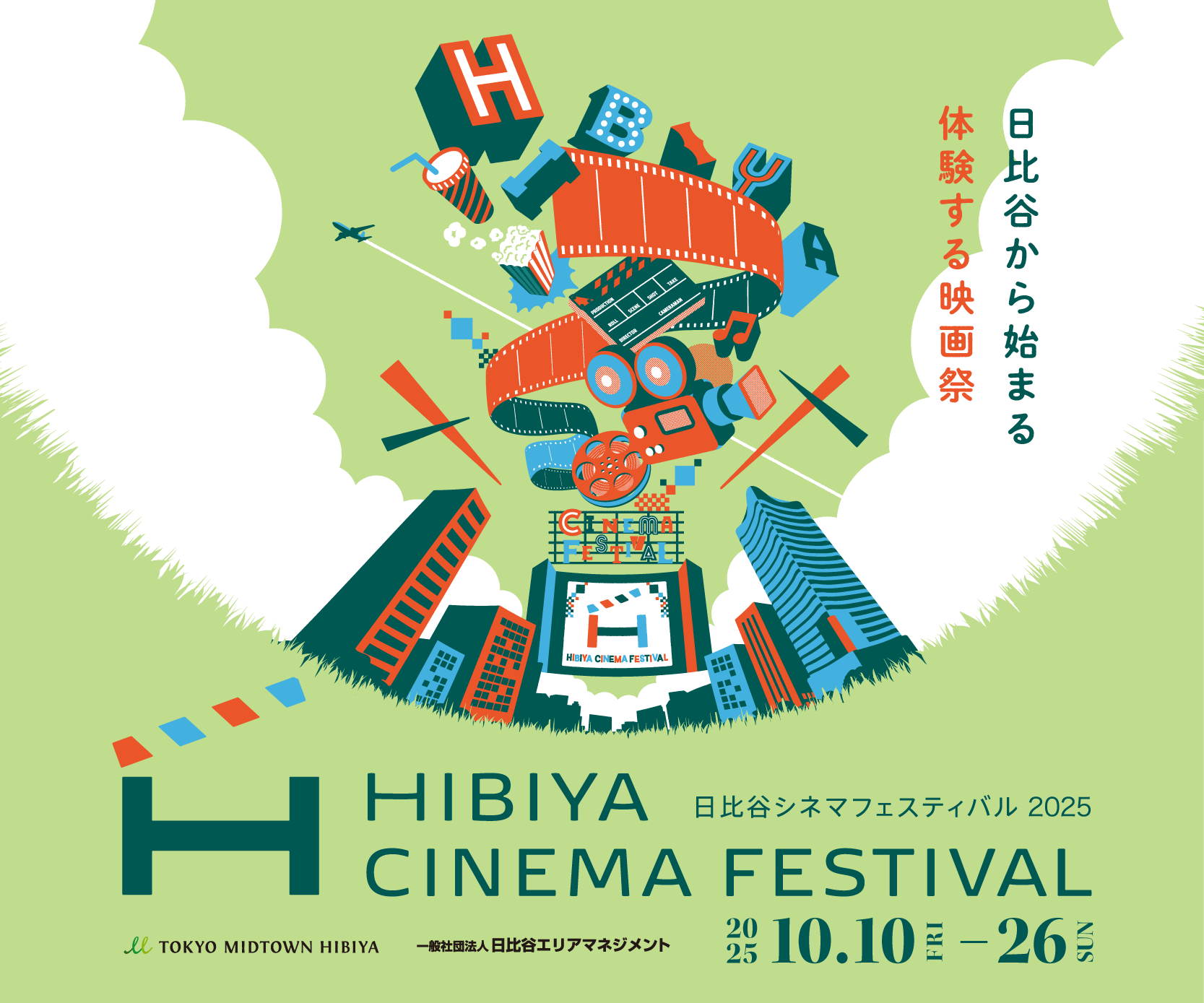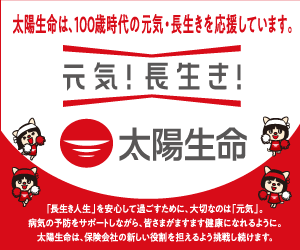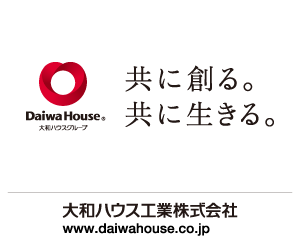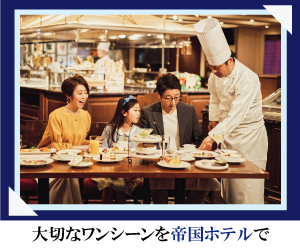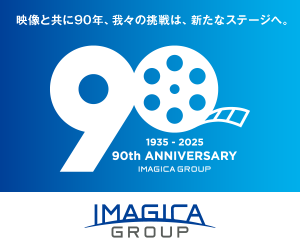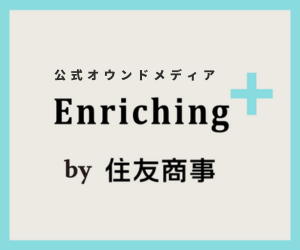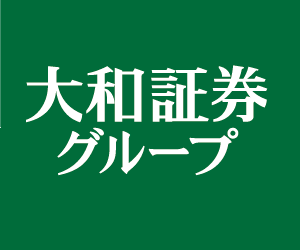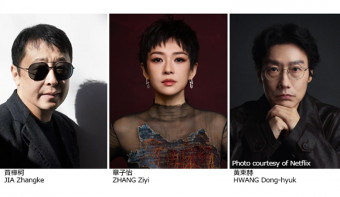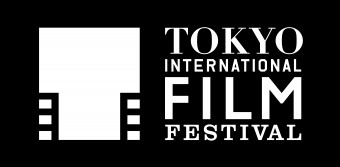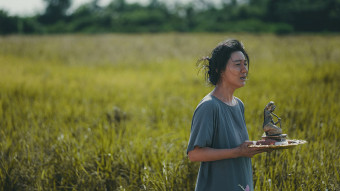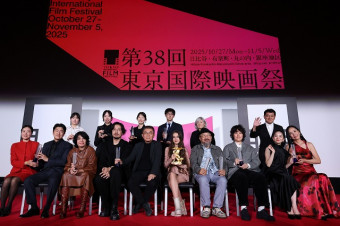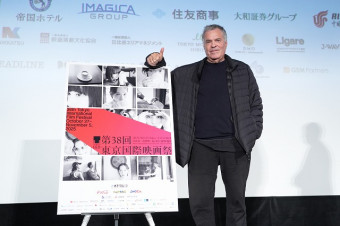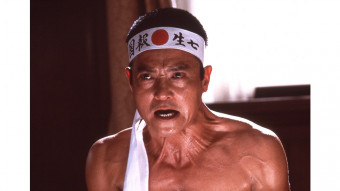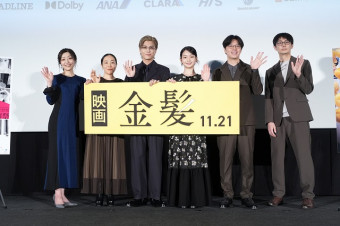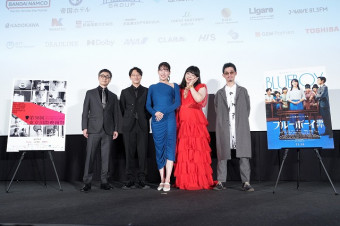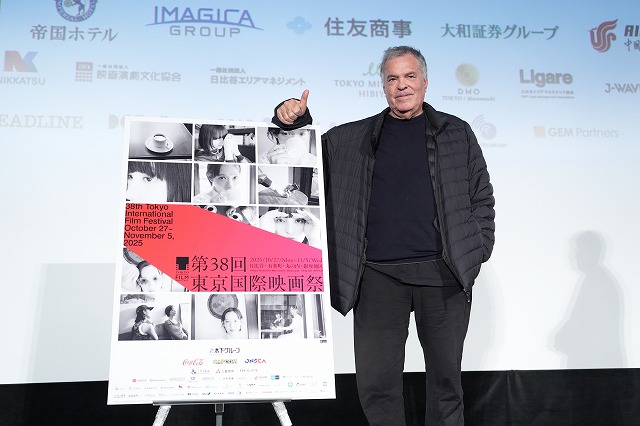
Israeli director Amos Gitai’s latest film, Golem in Pompei, received its world premiere on November 4 in the Competition section of the 38th Tokyo International Film Festival. The film, recorded last June at an arts festival in the ancient Italian city, is a document of Gitai’s multimedia theater piece, Golem, which is based mainly on the novel of the same title by the Nobel Prize-winning author Isaac Bashevis Singer, who wrote in Yiddish—a language he once described as dead and therefore the perfect tongue with which to tell ghost stories.
The Golem is a mythical creature out of Jewish mysticism, a being made of mud and clay whose purpose is to defend Jewish people from those who would oppress them. Gitai’s play, which is performed in eight languages by an international cast, mainly centers on two stories, one that takes place in Prague in 1590 during a campaign to eradicate Jews for supposedly killing Christian children, and the other in 20th-century Ukraine, when pogroms wiped out much of the Jewish population. However, the metaphor of the Golem as a “tool” is extended near the end of the play to describe modern weapons that are meant to keep nations safe, but, like the Golem itself, take on a deadly life of their own when the creator loses control of the creation.
The director, who was making his first appearance at TIFF since 1999, answered questions from the audience following the screening of the film, most of which had to do with current events.
Gitai said he had recently brought his play to Tel Aviv for the 30th anniversary of the assassination of Israeli Prime Minister Yitzhak Rabin, a tragedy that Gitai said effectively destroyed the Israel-Palestine peace process Rabin was pursuing at the time, which has never recovered. “But we cannot afford to be pessimistic,” he said. “We need hope in order to find a solution to the conflict that has been exacerbated by the very cynical Israeli government.”
He feels his play and, by extension, the film about the play have something vital to say about the dangers of using force to solve all problems. “The play has resonance for the current situation in the Middle East,” he said, “though it isn’t easy to spell out. My previous picture (Lamma Milkhama, 2024) was more explicitly about the present war.”
When asked by the moderator, TIFF Programming Director Ichiyama Shozo, how the play came about, Gitai replied, “Over the years I have been working with a group of actors who represent many nationalities. The director of the National Theater in Paris suggested I stage a play at a festival in Pompei, and I thought of the Golem as the savior of the Jewish race and decided the play should mainly be done in Yiddish.” He elaborated on the metaphorical meaning of the Golem and felt that cinema was actually a better medium to explore this metaphor, “since it offers all these options and parameters,” and so had the play filmed.
One audience member said she was from Gitai’s birthplace, Haifa, and wondered if the play could be viewed as optimistic in any way. “I think so,” responded the director, “for the very reason that you have actors from so many different places, including Palestine and Iraq, on the same stage. Creating a dialogue in the present environment is very important.”
Another viewer said the film didn’t make him feel optimistic at all, since its perspective dwelled on the results of violence and hatred. “My desire is that the meaning of the film be interpreted by each viewer in their own way,” Gitai said. “Personally, the films I like the most are those that, when I go home afterwards, still speak to me and tell me what to feel. In this film I took a story that is connected to the Jewish community but which I think is relevant to every community.”
In that sense, he admitted, some people may come away from the film discouraged by its implications. “Susan Sontag once wrote about the ‘suffering of the other,’ and one of the problems with the situation in the Middle East is that each group is consumed by its own suffering without actually looking at the suffering on the other side,” said Gitai. “If all we do is dwell on our own suffering, we will never see peace. Israelis need to be aware of the suffering of the Palestinians, and the Palestinians need to acknowledge the suffering of the Jewish people.”
Q&A Session: Competition
Golem in Pompei
Guest: Amos Gitai (Director)











